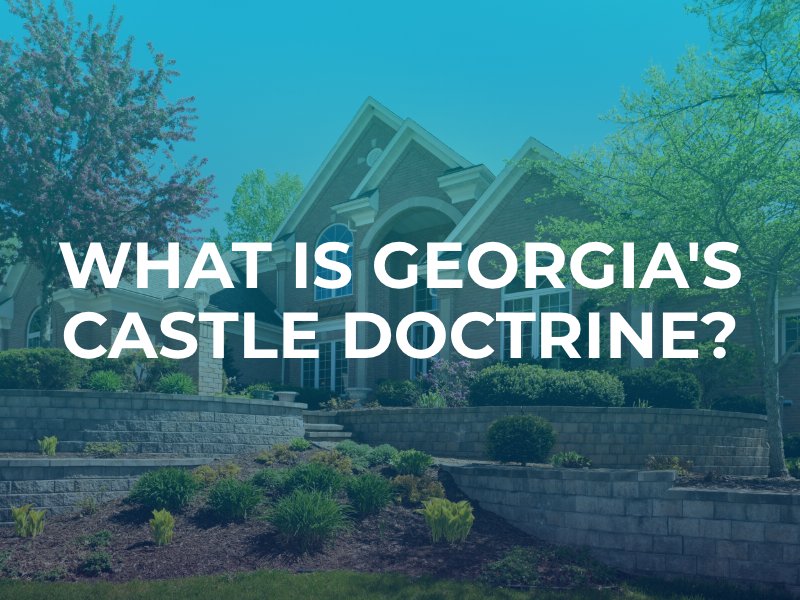What is Georgia’s Castle Doctrine?
It is generally accepted that a person has the right to defend themselves against injury or death. Every state has self-defense laws that allow citizens the right to use force to protect their own lives, the lives of others, and sometimes their own property, without the fear of facing criminal punishment for their actions. However, the laws that allow self-defense are not without controversy, particularly when it comes to the Castle Doctrine or similar stand your ground laws.

Understanding the Castle Doctrine
Imagine for a moment you are asleep in your bed in the early hours of the morning when suddenly you are awoken by a loud noise. You hear a window breaking, and you know there is somebody in your house. Do you have the right to protect yourself?
In Georgia, the answer to this question will be “yes.” The Castle Doctrine is designed to protect homeowners when they are in a situation where they need to protect themselves against a trespasser. The person’s home, in this case, is considered the “castle.”
Before these laws were enacted, owners had a general duty to retreat from danger if they were able to, even if somebody had entered their property illegally. If a homeowner decided to protect their home, they would have been able to prove they had no way out without putting themselves in potentially life-threatening danger. Under the Castle Doctrine, a person is generally not required to retreat.
However, there are some exceptions. If a person is sitting in their home and they only see someone on their property, they are not permitted to use deadly force. If, however, a person is sitting on their front porch and an armed person approaches them, they will be allowed to defend their life and the lives of others around them.
In these cases, people must also consider how threatening the other person involved is. For example, if a homeowner is a 250-pound man and a 100-pound woman breaks into their home and does not have a deadly weapon, it could be more difficult to enact the Castle Doctrine if the homeowner cannot prove that their life was in imminent danger.
Could a person claiming the Castle Doctrine still face a personal injury lawsuit?
The Castle Doctrine revolves around criminal charges that may or may not be filed against someone who is protecting themselves or others. However, even if a person does not face any criminal charges for harming another person on their property, that does not mean a civil lawsuit will not be filed.
For example, suppose a homeowner shoots an intruder in the arm, and prosecutors declined to press charges against the homeowner, citing the Castle Doctrine. The person who was shot could still file a personal injury lawsuit against the homeowner to recover compensation for their damages. Criminal charges are completely separate from civil cases. Though the evidence in each may be related, there is no guarantee the homeowner will not be found liable for any civil personal injury or wrongful death case.
Will an attorney be necessary for these cases?
Anytime the Castle Doctrine is a part of a case, it is advisable that all parties involved secure legal assistance. This is true whether dealing with any criminal charges related to the case as well as any civil personal injury or wrongful death claims that arise. Most plaintiffs and defendants in these cases will not have the legal experience or resources to properly protect themselves.
Speak with our Atlanta personal injury lawyers today at (404) 321-1700.